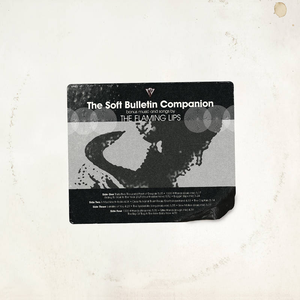

Dubbed by a few bold critics at the time as the Pet Sounds of the ’90s, their ninth studio record started to unlock a whole new level of festival audience far beyond what came before for the psychedelic weirdos from the Sooner State.įrontman Wayne Coyne has often referred to rare Flaming Lips hits during past interviews as gifts from the “gods of music.” Concert staples such as “Do You Realize?” or the title track off 2002’s Yoshimi Battles the Pink Robots are moments when the gods bent down and tapped the band on the shoulder, said it was time, and rewarded the good work they had set up previously with the best tracks on The Soft Bulletin only three years before (“Race for the Prize” and “Waiting for a Superman”). Released in 1999, it was a moment when the group essentially started all over again with something wholly new as they reacted to the death of Wayne Coyne’s father, as well as other deaths of loved ones experienced by longtime guitarist and keyboardist Steven Drozd. It was this mixture of elements that has allowed this album to endure the last ten years and become one of great albums of the '90s.The Flaming Lips ’ Soft Bulletin was a watershed moment for the Oklahoma City rock band. Coyne also sang about his father's death in songs like "Waiting for Superman" and "Suddenly Everything Has Changed." It was also about bassist Michael Ivins's car crash). In the earnest "The Spiderbite Song," Coyne sings about losing his friends and family (inspired by Drozd almost losing his arm due to what he claimed was a spiderbite, but was actually due to his ongoing drug use. Disguised under celebratory choruses, catchy melodies, lush harmonies and Wayne Coyne's typical oddball lyrics, was this darker, much more introspective and existential outlook. With songs like "What Is The Light?" and "The Gash," it was an epic album start to finish.īut it was also their most personal. The Soft Bulletin augmented grooving bass lines and guitars with drum machines, synthesized string parts and lots of electronic studio experimentation. The songs were filled with dense orchestration by multi-instrumentalist Steve Drozd and inspired production from longtime-collaborator Dave Fridmann. It's clear now that these experiments in sound, complex arrangements and studio manipulations were employed during the recording of The Soft Bulletin. This in turn led to their four-disc album Zaireeka, which was to be played on four different stereos, all at the same time. Leading up to the record, the Lips conducted what are now referred to as the "boombox experiments" and "parking lot experiments." As the now well-documented lore says, the band had its fans gather in a parking lot, handed out cassette tapes of music composed by the group, and instructed people to play them in their cars stereos at the same time, creating a thick cacophony of sounds and music. It also didn't sound like most of the music out there at the time. It didn't sound much like the band's previous work, which had always towed that line between noisy psych-rock, prog and some poppier alternative rock of the '90s. So when The Flaming Lips released The Soft Bulletin in 1999 (May 17 in UK, June 22 in US), it was a total surprise. It wasn't the first time people had written off the band: Everyone was pretty surprised by "Jelly'"s ubiquitous success, especially since the band had been toiling in indie rock obscurity since the early '80s. The band hadn't had a radio hit since 1993's "She Don't Use Jelly" and the Oklahoma group's followups did not yield anything close to that crossover success.

By 1999, a lot of people had written-off The Flaming Lips.

The Soft Bulletin came completely out of left field for me and many other fans.


 0 kommentar(er)
0 kommentar(er)
